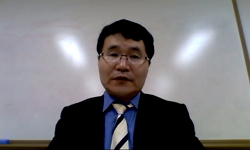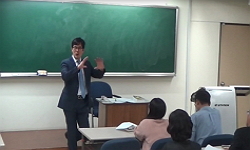서구 철학과 종교에서 영혼은 유사한 얼개와 속살을 공유하는 환생, 윤회, 부활 사상의 토대이자 불변하는 주체이기 때문에 신에 대한 연구만큼 중요한 주제이다. 그리스의 영웅들이 엘뤼시...
http://chineseinput.net/에서 pinyin(병음)방식으로 중국어를 변환할 수 있습니다.
변환된 중국어를 복사하여 사용하시면 됩니다.
- 中文 을 입력하시려면 zhongwen을 입력하시고 space를누르시면됩니다.
- 北京 을 입력하시려면 beijing을 입력하시고 space를 누르시면 됩니다.
https://www.riss.kr/link?id=A107620805
- 저자
- 발행기관
- 학술지명
- 권호사항
-
발행연도
2021
-
작성언어
Korean
-
주제어
그리스 종교 ; 그리스 철학 ; 영혼의 여행 ; 영혼불멸설 ; 영혼선재설 ; 복음서 ; 바울 ; 모나드 ; Greek Religion ; Greek Philosophy ; The Journey of the Soul ; Immortality of Soul ; Pre-existence of Soul ; the Gospel ; Paul ; Monad
-
등재정보
KCI등재
-
자료형태
학술저널
-
수록면
219-249(31쪽)
-
KCI 피인용횟수
0
- 제공처
-
0
상세조회 -
0
다운로드
부가정보
국문 초록 (Abstract)
서구 철학과 종교에서 영혼은 유사한 얼개와 속살을 공유하는 환생, 윤회, 부활 사상의 토대이자 불변하는 주체이기 때문에 신에 대한 연구만큼 중요한 주제이다. 그리스의 영웅들이 엘뤼시온 들판에서 지복을 누리며 영원히 산다는 호메로스와 헤시오도스의 증언은 당연히 영혼 불멸성에 근거한 영웅숭배 제의를 발전시켰다. 그리스도교의 부활과 관련된 신앙에서 영혼은 인간의 본질을 나타내는 중요한 지표로 간주되었다. 영혼 불멸성에 대한 개념은 논쟁적인 주제였으며, 영혼의 여행은 영지주의 문서를 판단하는 시금석으로 사용되었다. 특히, 오르페우스교, 디오니소스 제의, 소크라테스, 플라톤으로 이어지는 영혼에 대한 논쟁들을 신약성서의 영혼의 여행을 이해하는데 도움을 준다. 이러한 해석을 기반으로 신약성서 기자들(바울, 요한, 마가, 누가)은 예수의 십자가 사건을 통한 인류 구원의 목적이 “믿음의 결국은 영혼의 구원이다”(벧전 1:9)라는 사상을 도출하여, 그리스-로마 세계에서 그리스도교의 신앙을 전파하였다. 요한과 바울을 비롯한 신약성서 기자들은 영혼의 여행이라는 개념을 통해서 그리스 종교와 철학의 전통을 계승한 영혼관을 산출하였다. 그러므로 그리스 종교와 철학의 관점에서 살펴본 신약성서의 영혼의 여행은 영혼선재설과 불멸설의 근거를 제공한다. 이것을 토대로 모나드로서의 하나님에 대한 이해와 이 모나드로부터의 영혼이 방출된다는 것까지도 알려주기 때문에, 신약성서 자체가 고대 영지주의 사상의 영향을 많이 받았다는 증거가 된다. 이러한 영혼에 대한 인문학적 접근은 영혼에 대한 신약성서의 기록을 문자적으로만 해석하지 않고, 사상사적 배경에서 해석하도록 도와준다.
다국어 초록 (Multilingual Abstract)
Based on these interpretations, the New Testament writers (such as Paul, John, Mark, and Luke) could forge ideas that the purpose of human salvation through the crucifixion of Jesus Christ is “the salvation of your souls” (1 Peter 1:9). By doing so, they could successfully spread Christianity throughout the Greco-Roman world at that time. Therefore, from the perspective of Greek religion and philosophy, the journey of the soul in the New Testament could provide the basis for the pre-existence and immortality of the soul. This proves that the New Testament itself was probably influenced by ancient Gnostic thoughts that perceived God as the monad and the emission of the soul to be from him. This humanistic approach to the soul helps to interpret the text of the New Testament not just literally, but also in the context of the history of ideas.
In Western philosophy and religion, the human soul is a research subject as important as God, for it is the foundation of thoughts of rebirth, reincarnation, and resurrection, sharing similar features and frames with the latter. Homer and Hesiod’s a...
In Western philosophy and religion, the human soul is a research subject as important as God, for it is the foundation of thoughts of rebirth, reincarnation, and resurrection, sharing similar features and frames with the latter. Homer and Hesiod’s accounts in which Greek heroes blissfully lived forever in the fields of Elysion had naturally developed the idea of the immortality soul, which later established the cult of heroes. In Christian beliefs on resurrection, the soul is regarded as an essential indicator of human nature. The immortality of the soul has always been a controversial subject, and the journey of the soul is often used as a touchstone for defining Gnostic texts. In particular, debates on the soul among Orphism, the cult of Dionysus, Socrates, and Plato, helped to understand the journey of the soul in the text of the New Testament.
Based on these interpretations, the New Testament writers (such as Paul, John, Mark, and Luke) could forge ideas that the purpose of human salvation through the crucifixion of Jesus Christ is “the salvation of your souls” (1 Peter 1:9). By doing so, they could successfully spread Christianity throughout the Greco-Roman world at that time. Therefore, from the perspective of Greek religion and philosophy, the journey of the soul in the New Testament could provide the basis for the pre-existence and immortality of the soul. This proves that the New Testament itself was probably influenced by ancient Gnostic thoughts that perceived God as the monad and the emission of the soul to be from him. This humanistic approach to the soul helps to interpret the text of the New Testament not just literally, but also in the context of the history of ideas.
목차 (Table of Contents)
- 1. 들어가는 말
- 2. 그리스 종교와 철학에서 영혼과 영혼의 여행
- 3. 신약성서의 영혼의 여행
- 4. 나가는 말
- 참고문헌
- 1. 들어가는 말
- 2. 그리스 종교와 철학에서 영혼과 영혼의 여행
- 3. 신약성서의 영혼의 여행
- 4. 나가는 말
- 참고문헌
- 초록
- Abstract
참고문헌 (Reference)
1 장영란, "헬레니즘철학과 초기 그리스도교의 영혼 훈련 개념" 한국하이데거학회 (29) : 123-154, 2012
2 라일리, 그레고리, "하느님의 강-그리스도교 신앙의 원류를 찾아서" 한국기독교연구소 2005
3 조재형, "초기 그리스도교와 영지주의" 동연 2020
4 호메로스, "일리아스" 도서출판 숲 2015
5 성종현, "인간의 본질과 죽음 그리고 영혼과 육체의 분리 - 신약성서의 개인적·내세적 종말론의 논쟁점을 중심으로" 기독교사상과문화연구원 44 (44): 59-86, 2012
6 몬딘, B, "인간: 철학적 인간학 입문" 서광사 1996
7 아폴로도로스, "원전으로 읽는 그리스신화" 도서출판 숲 2012
8 현경식, "요한복음 8장에 나타난 기독론적 신론" 한국신약학회 21 (21): 955-992, 2014
9 장영란, "오르페우스교와 피타고라스학파의 영혼 윤희설" 한국현상학회 (26) : 131-158, 2005
10 호메로스, "오뒷세이아" 도서출판 숲 2014
1 장영란, "헬레니즘철학과 초기 그리스도교의 영혼 훈련 개념" 한국하이데거학회 (29) : 123-154, 2012
2 라일리, 그레고리, "하느님의 강-그리스도교 신앙의 원류를 찾아서" 한국기독교연구소 2005
3 조재형, "초기 그리스도교와 영지주의" 동연 2020
4 호메로스, "일리아스" 도서출판 숲 2015
5 성종현, "인간의 본질과 죽음 그리고 영혼과 육체의 분리 - 신약성서의 개인적·내세적 종말론의 논쟁점을 중심으로" 기독교사상과문화연구원 44 (44): 59-86, 2012
6 몬딘, B, "인간: 철학적 인간학 입문" 서광사 1996
7 아폴로도로스, "원전으로 읽는 그리스신화" 도서출판 숲 2012
8 현경식, "요한복음 8장에 나타난 기독론적 신론" 한국신약학회 21 (21): 955-992, 2014
9 장영란, "오르페우스교와 피타고라스학파의 영혼 윤희설" 한국현상학회 (26) : 131-158, 2005
10 호메로스, "오뒷세이아" 도서출판 숲 2014
11 아리스토텔레스, "영혼에 관하여" 궁리출판 2012
12 스코펠로, 마들렌, "영지주의자들" 분도 2005
13 조재형, "영지사상에서 살펴본 고린도후서에 나오는 바울의 적대자" 한국신약학회 20 (20): 443-478, 2013
14 차정식, "신약성서의 환생 모티프와 그 신학적 변용" 한들출판사 2007
15 헤시오도스, "신들의 계보" 도서출판 숲 2012
16 천병희, "신들의 계보" 도서출판 숲 2012
17 맥, 벌턴 L, "수사학과 신약성서" 나단 1993
18 엘리아데, 미르치아, "세계종교사상사2: 고타마 붓다에서부터 기독교의 승리까지" 이학사 2014
19 엘리아데, 미르치아, "세계종교사상사1: 석기시대에서부터 엘레우시스의 비의까지" 이학사 2014
20 박승찬, "생명의 원리에서 인격의 중심에로―서양철학적 관점에서 본 영혼론-" 신학과사상학회 (67) : 59-157, 2011
21 박경미, "사로잡힌 영혼과 신의 과오: 영지주의 우주론에 대한 인간학적 성찰" 한국기독교학회 (27) : 87-116, 2003
22 김상욱, "떨림과 울림" 동아시아 2018
23 조재형, "나그함마디 문서가 영지주의 사상과 신약성서 연구에 주는 의미와 도전" 한국기독교학회 (108) : 57-80, 2018
24 조재형, "그리스-로마종교와 신약성서-그리스도교의 기원에 대한 사상사" 부크크 2018
25 장영란, "그리스 신화와 철학으로 보는 영혼의 역사" 글항아리 2010
26 이동규, "고대 이집트인의 사후 세계와 영혼 이해" 중앙사학연구소 (31) : 197-227, 2010
27 조재형, "고대 영지 사상이 초기 기독교 공동체의 기독론에 끼친 영향- 신약성서의 영지주의적 본문을 중심으로" 신학사상연구소 (178) : 53-79, 2017
28 조재형, "고대 영지 사상이 초기 기독교 공동체의 '신론'(新論)에 끼친 영향 - 나그함마디 문서와 신약성서의 영지주의적 본문을 중심으로" 한신신학연구소 53 (53): 87-110, 2016
29 장영란, "고대 그리스 철학 이전의 영혼의 개념: 그리스 서사시와 서정시 및 비극을 중심으로" 철학연구회 (64) : 71-100, 2004
30 쿨만, O, "靈魂不滅과 죽은者의 復活" 한국신학대학 출판부 1979
31 배국원, "‘영혼’에 관한 최근의 철학적 논의들" 47 (47): 55-80, 2011
32 전명수, "‘마음·몸·영혼’과 사회에 대한 뉴에이지적 접근" 원불교사상연구원 (50) : 103-136, 2011
33 De Conick, April D., "‘Blessed Are Those Who Have Not Seen’ (Jn 20:29), Johannine Dramatization of an Early Christian Discourse"
34 Bovon, François, "The Soul’s Comeback: Immortality and Resurrection in Early Christianity" 103 (103): 387-406, 2010
35 Riley, Gregory J, "The River of God: A New History of Christian Origins" HarperCollins 2001
36 Bevir, Mark, "The Logic of the History of Ideas" Cambridge University Press 1999
37 Reis, David M, "The Journey of the Soul: Its Expressions in Early Christianity" Claremont Graduate University 1999
38 Plummer, Alfred, "The International Critical Commentary on the Holy Scriptures of the Old and New Testaments" T & T. Clark 1951
39 MacDonald, Dennis R, "The Homeric Epics and the Gospel of Mark" Yale University Press 2000
40 Lovejoy, Arthur O., "The Great Chain of Being: A Study of the History of an Idea" Harvard University Press 1948
41 MacDonald, Dennis R, "The Gospels and Homer: Imitations of Greek Epic in Mark and Luke-Acts, The New Testament and Greek Literature, Vol. I" Rowman & Littlefield 2015
42 Pagels, Elaine Hiesey, "The Gnostic Gospels" Vintage Books 1989
43 Wiles, Maurice F., "The Divine Apostle: The Interpretation of St Paul’s Epistles in the Early Church" Cambridge University 1967
44 Hamilton, Hdith, "The Collected Dialogues of Plato: Including the Letters Vol. LXXI, Bollingen Series" Pantheon Books 1961
45 Plato, "The Collected Dialogues of Plato Including the Letters" Pantheon Books 1961
46 Robinson, John A. T, "The Body: A Study in Pauline Theology" SCM Press 1963
47 John D. Turner, "Society of Biblical Literature Commemoration" E. J. Brill 1997
48 Riley, Gregory J., "Resurrection Reconsidered: Thomas and John in Controversy" Augsburg Fortress 1995
49 Talbert, Charles H, "Reading Corinthians: A Literary and Theological Commentary on 1 and 2 Corinthians" Crossroad 1992
50 Rohde, Erwin, "Psyche; the Cult of Souls and Belief in Immortality Amoung the Greeks" Kegan Paul 1925
51 Hamerton-Kelly, R. G, "Pre-Existence, Wisdom, and the Son of Man : A Study of the Idea of Pre-Existence in the New" Cambridge University 1973
52 Riley, Gregory J., "One Jesus Many Christs: How Jesus Inspired Not One True Christianity but Many" Fortress 1997
53 Cullmann, Oscar, "Immortality of the Soul or Resurrection of the Dead?: The Witness of the New Testament" Epworth Press 1958
54 Bauer, Walter, "Greek-English Lexicon of the New Testament and Other Early Christian Literature" the University of Chicago Press 2000
55 Burkert, Walter, "Greek Religion" Harvard University Press 1985
56 Balz, Horst, "Exegetical Dictionary of the New Testament Volume 3, 3 vols, Vol. 3" W. B.Eerdmans 1993
57 Morrison, John, "Encyclopedia of Philosophy" Macmillan Reference USA 42-44, 2006
58 MacDonald, Dennis R, "Does the New Testament Imitate Homer?: Four Cases from the Acts of the Apostles" Yale University Press 2003
59 MacDonald, Dennis R, "Christianizing Homer: The Odyssey, Plato, and the Acts of Andrew" Oxford University Press 1994
60 Pearson, Birger A., "Ancient Gnosticism: Traditions and Literature" Fortress Press 2007
61 Ferm, Vergilius, "An Encyclopedia of Religion" Littlefield, Adams & Co 1964
62 Brandon, S. G. F, "A Dictionary of Comparative Religion" Charles Scribner’s Sons 1970
63 Bernard, John Henry, "A Critical and Exegetical Commentary on the Gospel According to St. John Vol. 2" Clark 1985
64 Bernard, John Henry, "A Critical and Exegetical Commentary on the Gospel According to St. John Vol. 1. 2 vols, Vol. I" T. & T. Clark 1985
동일학술지(권/호) 다른 논문
-
『성령해석학: 오순절 관점으로 성서 읽기』 : 크레이그 S. 키너 지음/송일 옮김, 서울: 새물결플러스, 2020, 727쪽
- 한국신학정보연구원
- 김동수(서평자)
- 2021
- KCI등재
-
에스겔 18:5-9과 레위기 19장의 본문상호성과 그 신학적 함의
- 한국신학정보연구원
- 조정호(Jungho Cho)
- 2021
- KCI등재
-
나훔서의 역사적 맥락에 관한 연구 -에살핫돈의 왕위계승조약과의 관계를 중심으로-
- 한국신학정보연구원
- 윤영준(Young-Joon Yoon)
- 2021
- KCI등재
-
- 한국신학정보연구원
- 김휘준(Whiejun Kim)
- 2021
- KCI등재
분석정보
인용정보 인용지수 설명보기
학술지 이력
| 연월일 | 이력구분 | 이력상세 | 등재구분 |
|---|---|---|---|
| 2027 | 평가예정 | 재인증평가 신청대상 (재인증) | |
| 2021-01-01 | 평가 | 등재학술지 유지 (재인증) |  |
| 2018-01-01 | 평가 | 등재학술지 유지 (등재유지) |  |
| 2015-01-01 | 평가 | 등재학술지 선정 (계속평가) |  |
| 2013-01-01 | 평가 | 등재후보학술지 유지 (기타) |  |
| 2012-01-01 | 평가 | 등재후보 1차 PASS (등재후보1차) |  |
| 2010-01-01 | 평가 | 등재후보학술지 선정 (신규평가) |  |
학술지 인용정보
| 기준연도 | WOS-KCI 통합IF(2년) | KCIF(2년) | KCIF(3년) |
|---|---|---|---|
| 2016 | 0.05 | 0.05 | 0.11 |
| KCIF(4년) | KCIF(5년) | 중심성지수(3년) | 즉시성지수 |
| 0.1 | 0.14 | 0.401 | 0 |





 DBpia
DBpia






